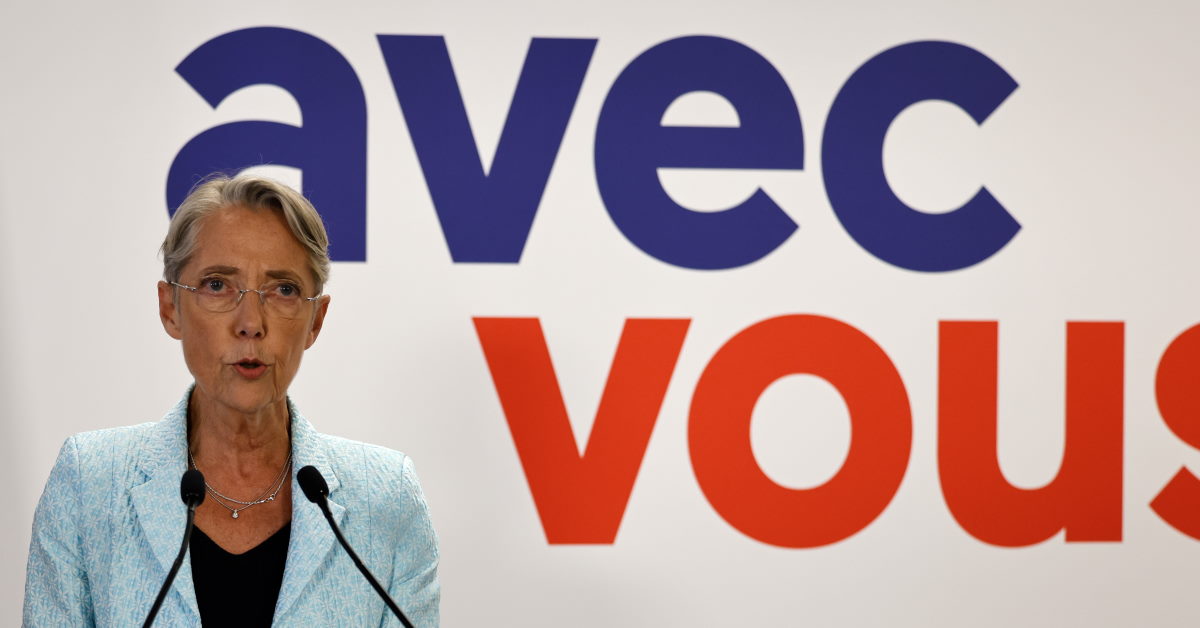As the results rolled in for the first round of France's parliamentary elections, the leader of France's new left-wing alliance sounded both hopeful and triumphant.
Speaking from a trendy bar in northeast Paris serving as his election night headquarters, Jean-Luc Melenchon said the so-called NUPES – or New Ecological and Social Popular Union – alliance he heads had passed its first test in "magnificent fashion."
"Everyone should be thanked who made this alliance possible, which has ended up convincing our citizens that we are ready to govern with a programme and with unity that has never faltered," Melenchon added on Sunday.
His red-green coalition of leftists, greens and Communists is the first such tie-up in 25 years and has given new hope to the left, which has been in the political wilderness since 2017.
France's political map has been redrawn around three poles: one dominated by Melenchon, the centre ground occupied by Macron, and a right wing dominated by anti-immigration populist Marine Le Pen.
Yet despite the renewed optimism, in the decisive second round of the parliamentary election next Sunday, Melenchon and his allies are seen as falling well short of a majority.
"We've confounded predictions. Now the challenge is to prove the projections wrong," said the head of the EELV green party, Julien Bayou, on Sunday.
Surge?
Projections by polling firms suggest that NUPES is on track for 150-220 seats under France's parliamentary system, which sees MPs elected individually from 577 separate constituencies.
That is a huge increase on the 60-odd seats its members hold in the outgoing parliament.
Macron's "Ensemble" (Together) coalition is projected to remain the biggest party with 255-310 members, but possibly without the 289-seat majority.
If the shortfall is modest, most analysts expect the president to be able to govern by tempting over defectors, broadening his alliance to new parties, or doing individual deals for legislation.
Some observers argued that the results should not be overestimated as proving the appeal of the new left-wing coalition.
"There isn't a surge for the left, there isn't a surge for NUPES which scored around 26 percent," analyst Jerome Jaffre from the Cecop think-tank argued on Europe 1 radio.
He said Melenchon's France Unbowed party, the Socialists, Greens and Communists achieved roughly the same proportion of votes in the last elections in 2017.
The gains were tactical: by fielding a single candidate in constituencies, the left was on track to increase its representation, not its share of ballots.
Abstention
Next Sunday will feature run-off contests for the top two candidates in the first round of voting.
Macron's "Together" coalition qualified for 416 of them, while NUPES will be present in 384.
But while Macron's allies can count on the backing of right-wing or even far-right voters for the second round, NUPES is seen as lacking such reserves.
The challenge is therefore to convince the working classes and young people, who abstained in huge numbers on Sunday, to head to the polls next weekend.
Turnout hit a historic low of around 47 percent on Sunday, with abstentionism particularly high in low-income areas around French cities that form the bedrock of Melenchon's support.
"Pour out!" Melenchon said on Sunday night in his speech, which also promised hikes to the minimum wage, new public-sector recruitment, and an end to Macron's plans to increase the retirement age.
"That's the message: if you want things to change, then join us," Socialist party head Olivier Faure stressed on Monday.
